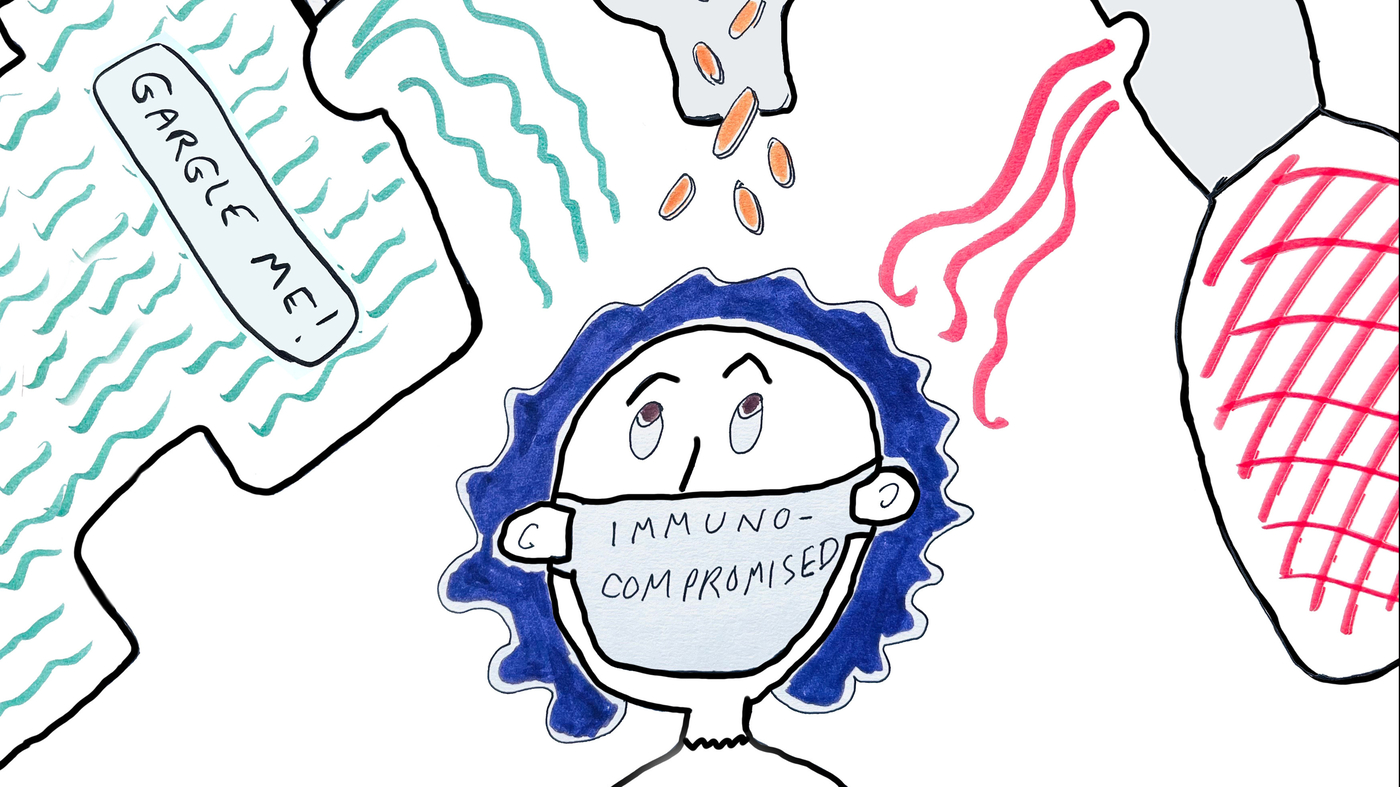We regularly answer frequently asked questions about the coronavirus. If you have a question you’d like us to consider for a future post, email us at [email protected] with the subject line: “Weekly Coronavirus Questions.” See an archive of our FAQs here.
My husband is immuno-compromised. He scours the internet for products that can protect him against COVID – from mouthwashes to supplements. Is there any evidence that any of these products work?
Four years into the COVID pandemic,many people are relaxing their precautions. But it’s still tough to be immunocompromised, perhaps even tougher than a year or two ago.
Back then, an immunocompromised person who caught COVID could get monoclonal antibody treatments, which were effective at lessening the severity of the disease and could even help prevent infection if taken prophylactically. But those treatments are now all gone. The Food and Drug Administration pulled them from the market as the virus evolved, rendering them ineffective.
Yes, we still have vaccines and effective antiviral treatments like paxlovid. But for some immunocompromised folks, vaccines are often less effective as their weakened immune systems fail to mount a sufficient response,and paxlovid can interfere with many commonly prescribed medications. Well-fitted, high quality masks work well, but aren’t foolproof, especially in crowded indoor spaces where no one else is wearing one.
With so few options, many immunocompromised people — and other folks looking to avoid COVID and long COVID — are turning to treatments and products outside of official prevention and treatment guidelines. The dozens upon dozens of products purported to fight or prevent COVID can be overwhelming, ranging from vitamins and other supplements to anti-COVID nose sprays and mouthwashes.
“People, especially immunocompromised people, have a desire to take control of their health, particularly in the context of COVID,” says Andrea Love, an immunologist and executive…
Read the full article here

Leave a Reply